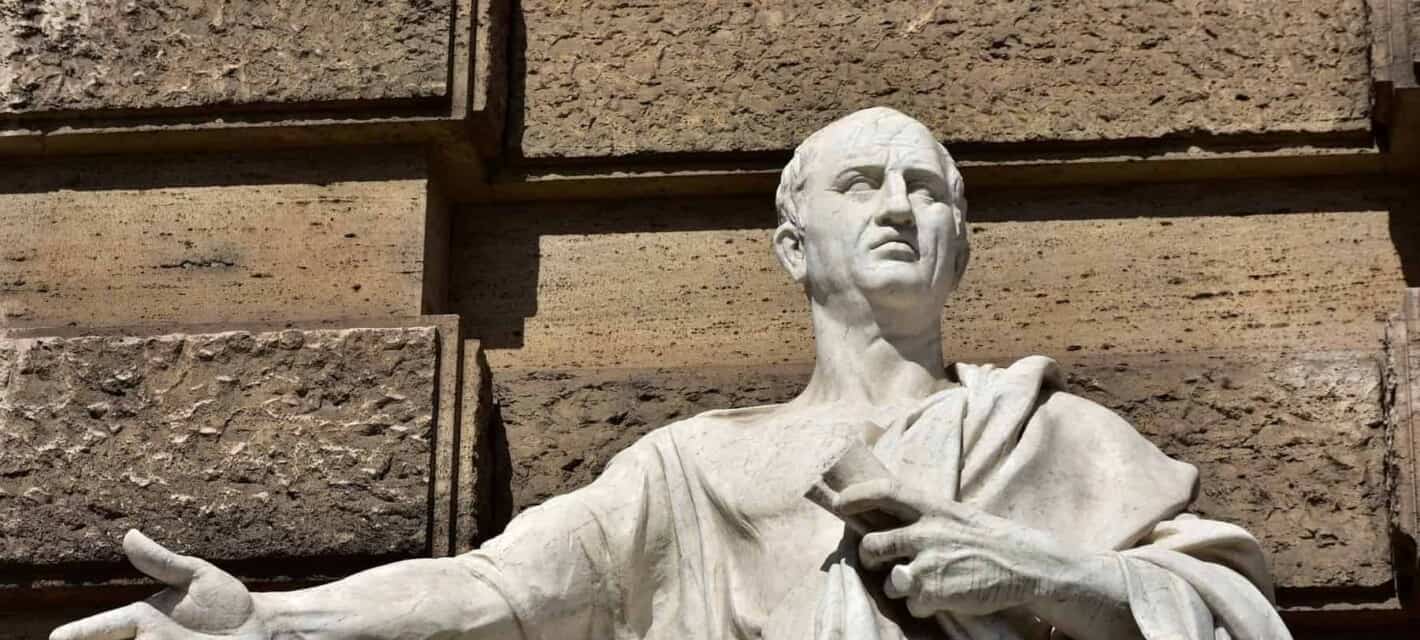Marcus Tullius Cicero is widely considered to be one of Rome’s greatest orators and is known for helping foil the Catiline Conspiracy, his opposition to Caesar, and his speeches denouncing Mark Antony. He was born on January 3, 106 BC and was a member of a wealthy municipal family. His father was a member of the equestrian order and had a lot of political connections, but since he was a semi-invalid, he was unable to enter public life. He paid for the education of Cicero and his younger brother, and the duo studied philosophy and rhetoric in Greece and Rome.
Politics
As a young man, Cicero served in the military under Pompey’s father, Pompeius Strabo, but he had no taste for active service and wanted a career in politics. He entered the legal field, and one of his first major cases took place in 81 BC when he defended Publius Quinctius. The following year, he gained fame for his brilliant defense of Sextus Roscius on a charge of patricide. It was a bold move by Cicero since killing one’s father was considered one of the worst crimes in Rome. Also, he accused several favorites of Sulla of committing the murder. The dictator could easily have had the young lawyer murdered. As it transpired, Roscius was acquitted.
Cicero rose through the political ranks; first, he became quaestor in 75 BC, then he was elected praetor in 66 BC before landing the crucial rank of consul in 63 BC. He was the youngest man ever to achieve the position of consul without coming from a political family. Cicero made his first important public political speech in 66 BC as praetor when he spoke in favor of issuing Pompey with command of the Roman army against Mithridates VI of Pontus. Cicero wanted a friendly relationship with Pompey in the political field; their shared hatred of Crassus was one of the reasons.

Catiline Conspiracy
Sergius Catilina (also known as Catiline) was a politician with revolutionary ideas; his plan for agrarian reform alarmed important members of the Senate and ensured Cicero was elected consul for 63 BC along with Gaius Antonius Hybrida. An irate Catiline decided to grab power by force and planned armed uprisings throughout Rome. After surviving an assassination attempt, Cicero went to the Senate and made a speech denouncing his rival.
While Catiline was in the Senate on that day and denied rumors of a plot, he fled Rome that very night. Eventually, Cicero uncovered evidence of a plot to burn Rome and murder senators. Five conspirators were executed when Cicero and Cato the Younger spoke in favor of execution while Caesar spoke against it. Cicero announced the death of the five men to a waiting crowd; he said ‘vixerunt’ (they are dead). Catulus hailed Cicero as the ‘father of his country,’ and the crowd cheered him as he announced the deaths of the plotters. However, he got carried away and breached Roman law when executing the men without trial, an act that left him open to prosecution. The Catiline Conspiracy was the high water mark of his career.

